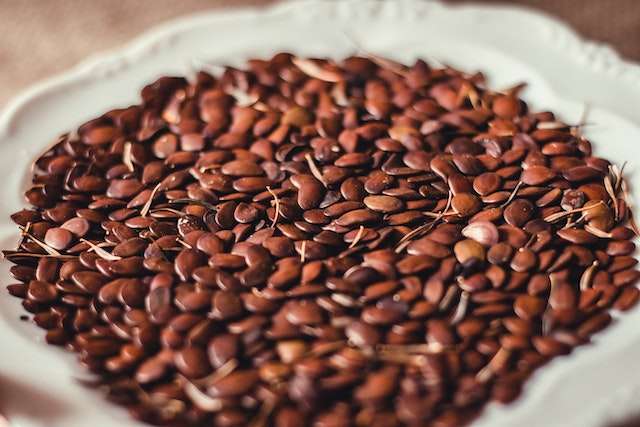Last Updated on August 14, 2023 by HBW2
What is Cardio Vascular Disease?
Cardiovascular disease (CVD) is any disease involving the heart or blood circulatory system. There are many problems that may arise within the cardiovascular system.
Different types of CVD:
Ø Disease related to circulatory system-
· Coronary artery disease
· Peripheral arterial disease
· Cerebrovascular disease
· Renal artery stenosis
· Aortic aneurysm
Ø Disease related to heart-
· Cardiomyopathy
· Hypertensive heart disease
· Heart failure
· Pulmonary heart disease
· Cardiac dysrhythmias
Apart from this there are many inflammatory heart diseases are found such as – endocarditis, cardiomegaly, myocarditis etc.

Heart
Causes of Cardio Vascular Disease:
* High blood pressure
High blood pressure (hypertension) is one of the most important risk factors for CVD. If your blood pressure is too high, it can damage your blood vessels.
* Smoking
Smoking and other tobacco use is also a significant risk factor for CVD. The harmful substances in tobacco can damage and narrow your blood vessels.
*High cholesterol
Cholesterol is a fatty substance found in the blood. If you have high cholesterol, it can cause your blood vessels to narrow and increase your risk of developing a blood clot.
*Diabetes
Diabetes is a lifelong condition that causes your blood sugar level to become too high. High blood sugar levels can damage the blood vessels, making them more likely to become narrowed. Many people with type2 diabetes are also overweight or obese, which is also a risk factor for CVD.
*Inactivity
If you don’t exercise regularly, it’s more likely that you’ll have high blood pressure, high cholesterol levels and be overweight. All of these are risk factors for CVD. Exercising regularly will help keep your heart healthy. When combined with a healthy diet, exercise can also help you maintain a healthy weight.
*Being overweight or obese
Being overweight or obese increases your risk of developing diabetes and high blood pressure, both of which are risk factors for CVD. If your body mass index (BMI) is 25 or above you are prone to different CVDs.
*Family history of CVD
If you have a family history of CVD, your risk of developing it is also increased. You’re considered to have a family history of CVD if either father or brother were diagnosed with CVD before they were 55 Mother or sister were diagnosed with CVD before they were 65. Tell your doctor or nurse if you have a family history of CVD. They may suggest checking your blood pressure and cholesterol level.
*Data Regarding Severity of CVDs Worldwide:
~ An estimated 17.9 million people died from CVDs in 2019, representing 32% of all global deaths. Of these deaths, 85% were due to heart attack and stroke.
~ Over three quarters of CVD deaths take place in low- and middle-income countries.
~ Out of the 17 million premature deaths (under the age of 70) due to non communicable diseases in 2019, 38% were caused by CVDs. (According to WHO)
What are the symptoms of cardiovascular disease?
Ø Symptoms of heart issues
· Chest pain (angina).
· Chest pressure, heaviness or discomfort, sometimes described as a “belt around the chest” or a “weight on the chest.”
· Shortness of breath (dyspnea).
· Dizziness or fainting.
· Fatigue or exhaustion.
Ø Symptoms of blockages in blood vessels throughout your body
· Pain or cramps in your legs when you walk.
· Leg sores that aren’t healing.
· Cool or red skin on your legs.
· Swelling in your legs.
· Numbness in your face or a limb. This may be on only one side of your body.
· Difficulty with talking, seeing or walking.
How is cardiovascular disease treated?
· Treatment plans can vary depending on your symptoms and the type of cardiovascular disease you have. Cardiovascular disease treatment may include:
· Lifestyle changes: Examples include changing your diet, increasing your aerobic activity and quitting smoking or tobacco products.
· Medications: Your healthcare provider may prescribe medications to help manage cardiovascular disease. Medication type will depend on what kind of cardiovascular disease you have.
· Procedures or surgeries: If medications aren’t enough, your healthcare provider may use certain procedures or surgeries to treat your cardiovascular disease. Examples include stent in your heart or leg arteries, minimally invasive heart surgery, open-heart surgery, ablations or cardioversion.
· Cardiac rehabilitation: You may need a monitored exercise program to help your heart get stronger.
· Active surveillance: You may need careful monitoring over time without medications or procedures/surgeries.
How can one prevent cardiovascular disease?
You can’t prevent some types of cardiovascular disease, such as congenital heart disease. But lifestyle changes can reduce your risk of many types of cardiovascular disease. You can reduce your cardiovascular risks by:
· Avoiding all tobacco products.
· Managing other health conditions, such as Type 2 diabetes, high cholesterol or high blood pressure.
· Achieving and maintaining a healthy weight.
· Eating a diet low in saturated fat and sodium.
· Exercising at least 30 to 60 minutes per day on most days.
· Reducing and managing stress.
Natural treatment for a healthy heart:
There are several natural treatment options that can be used to help manage a hole in the heart. These include:
1. Garlic:
Garlic has been shown to have antioxidant and anti-inflammatory properties, which can help to improve heart health and lower the risk of heart disease.
2. Coenzyme Q-10 (CoQ10):
CoQ10 is a nutrient that plays a vital role in the energy production of cells, particularly in the heart. It has been shown to improve heart function and reduce the risk of heart disease. It is found in plants such as soya bean, peanut, palm oil and litchi pericarp and in animals such as pelagic fish, beef and pork hearts.
3. Red Yeast Rice:
Red yeast rice is a traditional Chinese medicine that has been used for centuries to improve heart health. It contains compounds that can lower cholesterol levels and improve heart function.
4. Flaxseed:
Flaxseed is high in omega-3 fatty acids, which have been shown to have anti-inflammatory properties and can help to improve heart health.

Flax Seeds
5. Vitamin K2:
Vitamin K2 is a nutrient that plays a vital role in the health of the cardiovascular system. It has been shown to improve heart function and lower the risk of heart disease.
6. Resveratrol:
Resveratrol is a natural compound found in red wine and certain fruits and vegetables. It has been shown to have antioxidant and anti-inflammatory properties, which can help to improve heart health.

